Some of the links in this post may be affiliate links.
Are African Violets (Saintpaulia) toxic to cats? Keep reading this short post to find out the simple answer, and also to discover some things that you may not have thought of that are important to consider so you can keep your beloved pets safe!
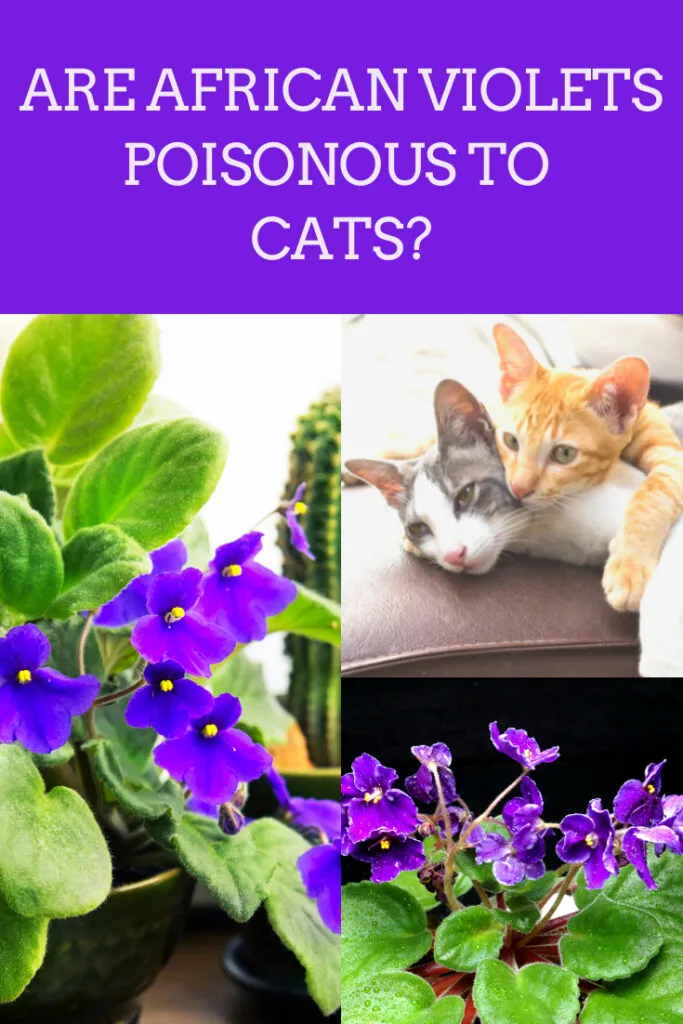
Good news. The short answer is no! The ASPCA (American Society for the Prevention of Cruelty to Animals) lists the African Violet as non-toxic to cats, dogs and even horses.
Keep reading though because although they are non-toxic themselves, there are some other important things to consider that can still cause issues for your kitty.
Table of Contents
OTHER IMPORTANT CONSIDERATIONS
1. TOXIC PRODUCTS
Although the plants themselves are non-toxic to cats, keep in mind that growers of African Violets may have used products that could be harmful.
These include pesticide sprays and even systemic insecticides which are added to the soil and absorbed by the plant.
If you are concerned, contact the grower and ask to be safe.
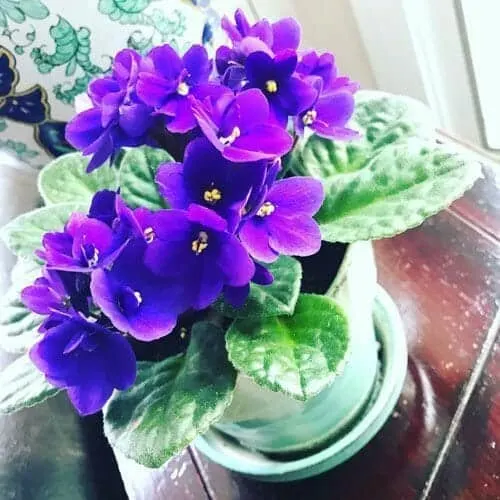
2. KNOW THE SYMPTOMS
If your cat decides to snack on your African Violets, keep an eye out for any symptoms. Especially if you have been using any products (fertilizers and insecticides), check the manufacturers’ labels for any toxicity information.
Look out for any changes in behavior, as well as incontinence, tearing and salivating.
Even without any toxicity added by using fertilizers or insecticides, your cat can still exhibit mild symptoms by eating something they’re not supposed to be eating and that is unfamiliar to their digestive system, especially if large quantities are eaten.
Some symptoms of toxicity can include loss of appetite, vomiting, diarrhea, lethargic behavior, sneezing, pawing at the mouth/nose, and in severe cases, seizures.
If your cat experiences any erratic behavior or any unusual symptoms, contact the Animal Poison Control immediately or contact your vet right away.
3. KEEPING CATS AWAY
The best thing you can do is to try and prevent your cat from nibbling on your plants in the first place. This is easier said than done, but here are some tips that you can try!
Distract Your Cat With Other Plants
You may want to consider giving your cat his/her own plant! Plants love cat grass so don’t be afraid to experiment. Ask your vet if you have any hesitation beforehand.
You can get great cat grass kits right off of Amazon and trial it out. Many cat owners seem to have success with this method.
Use Aluminum Foil
Cats hate the taste, feel and sound of crinkly aluminum foil and they also hate to walk on it. Try experimenting with placing aluminum foil around your plants.
You can even try wrapping your pot in aluminum foil. Experiment and see what works!
Isolate Your Plants
Physically preventing your cats from entering your plant area is the best thing you can do to prevent them from nibbling on your plants.
It’s not always practical or ideal, but if you have a plant room where you can simply close the door, this is the most effective solution.
You can also consider growing your African Violets in a terrarium with a screened top or some people even place them in bird cages!
Have you struggled with your cat eating your African Violets? Comment below, I’d love to hear!
Here are some related resources that you may be interested in:
30 Nontoxic Houseplants for Cats & Dogs
40 Toxic Houseplants for Cats & Dogs


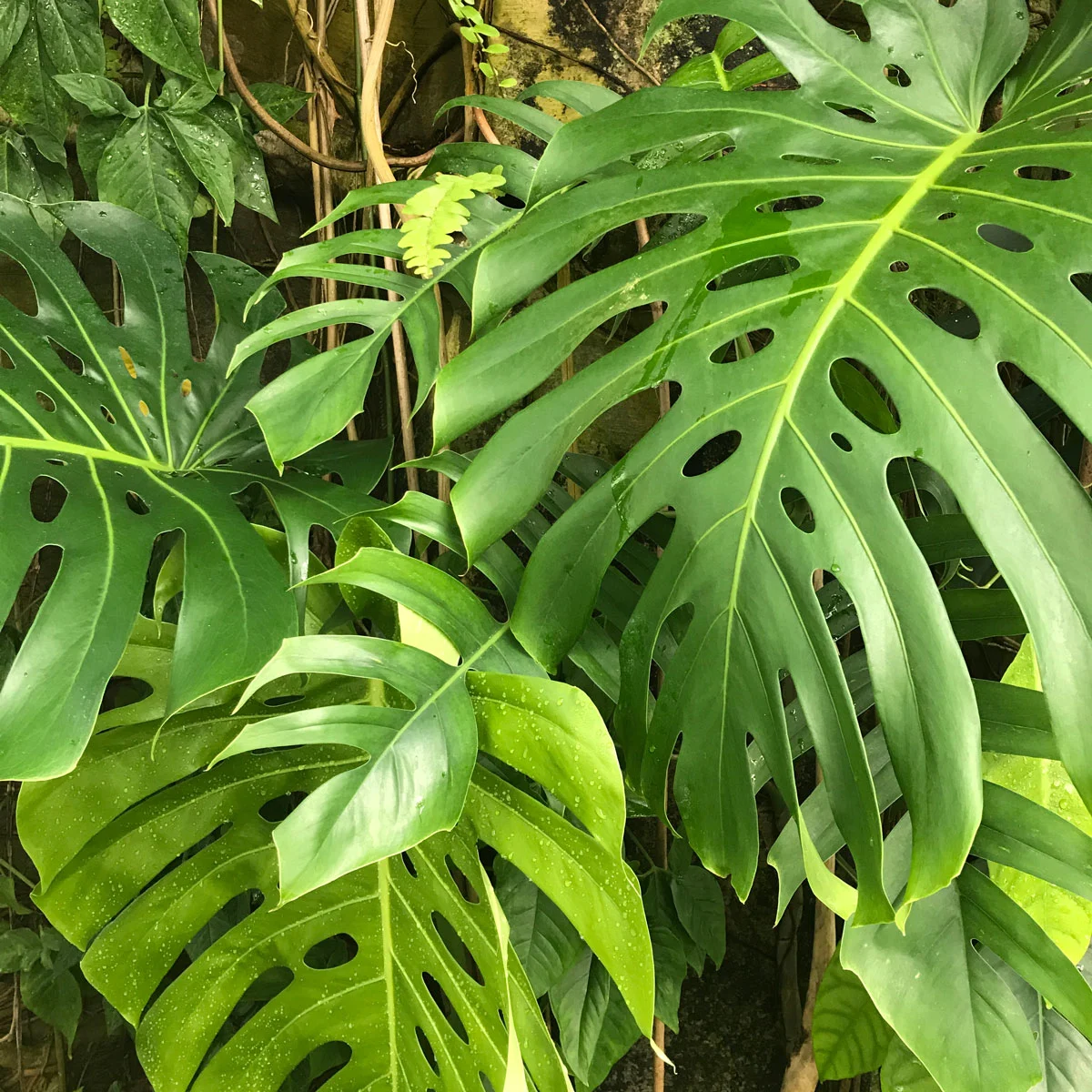
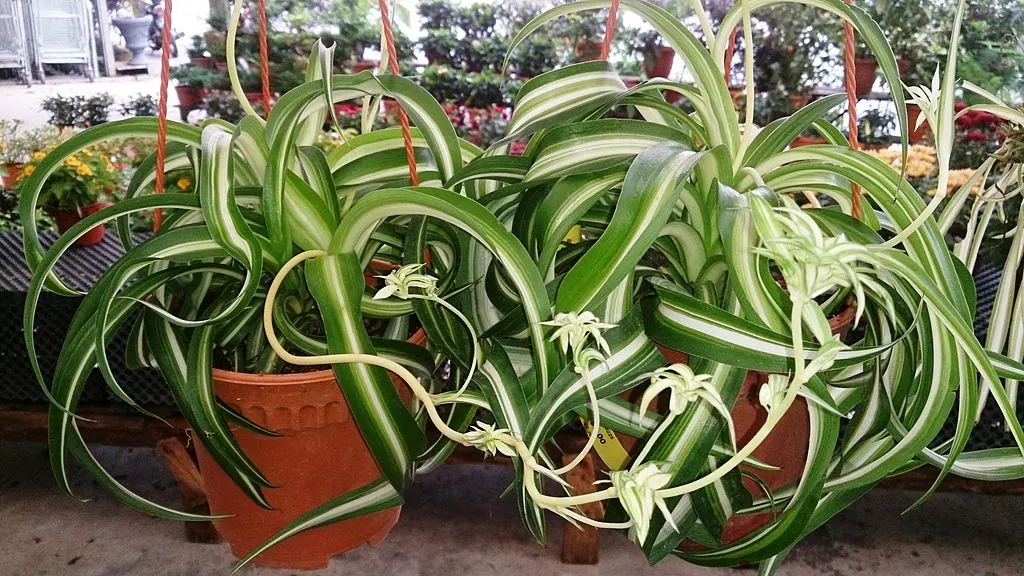
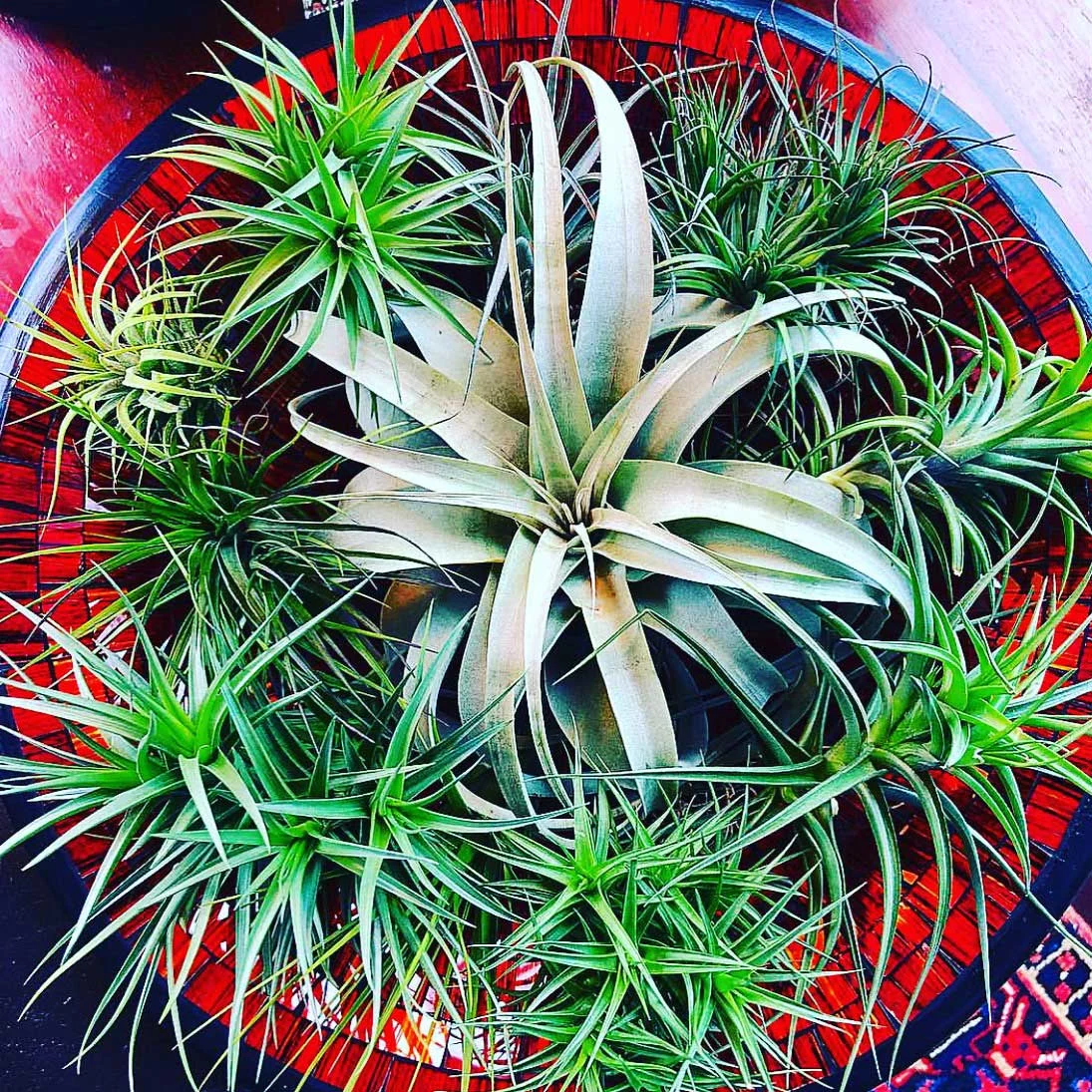

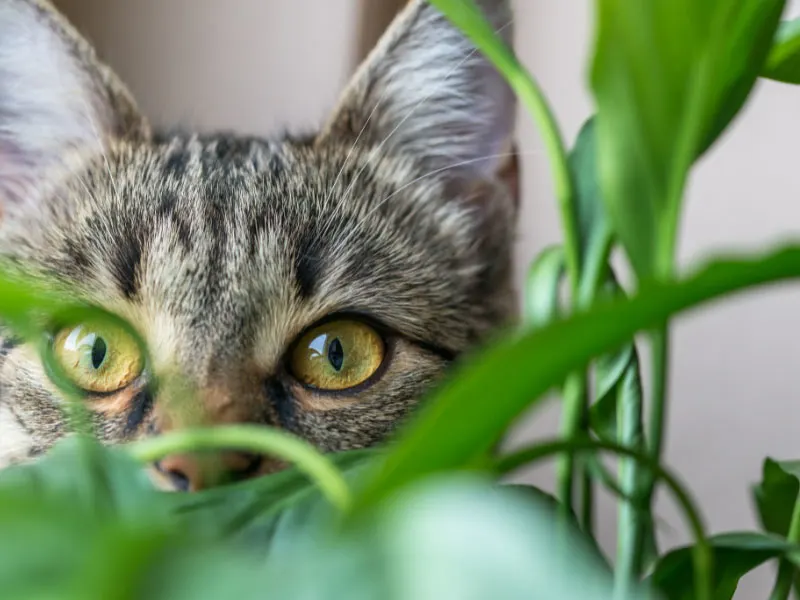
Billy Gatton
Saturday 15th of January 2022
My young female kitten eats only the blooms off my violets! Once the blooms are gone she sometimes shoves the pot off the table. I am going to try aluminum foil.
Raffaele
Monday 17th of January 2022
Hi Billy! That is so frustrating! At least African Violets are non-toxic to cats though. Hopefully your aluminum foil will deter her from eating your blooms!